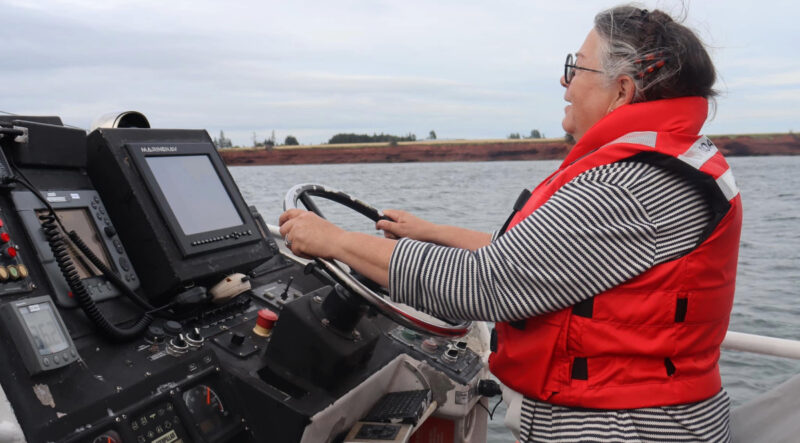Minister urged to steer aquaculture transition with balanced approach
Aquaculture technology companies call on Fisheries Minister Diane Lebouthillier for a “balanced approach” in the transition of BC’s salmon farming industry.
By Fabian Dawson
SeaWestNews
Canadian aquaculture technology companies, world renowned for their innovations, are calling on Ottawa for a “balanced approach” to ensure success in the transition of the salmon farming industry in British Columbia.
In a letter to Fisheries Minister Diane Lebouthillier, the group said it is concerned about a perspective being shared by anti-fish farming activists that open-net pen salmon farms in BC should be removed in favour of “land based closed containment” facilities.
“This position presents an unrealistic dichotomy between ocean net pens and new technologies,” said the group representing private sector companies focused on marine and land-based salmon farming containment innovation and technologies.
“It is not a question of either/or but rather both/and: all technologies are important to ensure a future secure supply of sustainably produced farm-raised seafood for Canada and the world.”
“A balanced approach needs to be taken to ensure success in the BC salmon farming industry transition.”
The letter comes in the wake of massive financial and operational struggles by land-based fish farming pioneers like Atlantic Sapphire and AquaBounty.
Global fisheries, aquaculture and climate scientists have labelled the activism around moving all BC salmon farms to land based operations as unrealistic, reckless, and destructive because growing the global supply of salmon on land would require the same amount of energy per year needed to power a city of 1.2 million people and contribute to higher CO2 emissions.
Raising land based Atlantic salmon also costs 12 times more than ocean farming, they said.
Last February, a BC government-commissioned report projected that replacing BC’s current salmon farm production with recirculating aquaculture systems (RAS), also known as land-based or closed containment operations, would require a direct investment of between $1.8 billion to $2.2 billion.
The report authors from Counterpoint Consulting Inc. also estimated that it will be at least 10 years before a significant land-based salmon production sector is operating at a steady rate in BC.
It mirrors an earlier government report – The State of Salmon Aquaculture Technologies study released in February 2020 which warned RAS technology requires the use of large amounts of land, water, and power, and thus has a significant environmental footprint, in particular greenhouse gas emissions.
The BC coalition of First Nations for Finfish Stewardship (FNFFS) has said that moving to land-based salmon farming is not an option for its members.
“Some Nations in this coalition have completed feasibility studies on land-based salmon farming in their territories for many years, and they came to the same result: it is not possible, and if it was, they would have moved to land-based salmon farming years ago,” FNFFS said.
The coalition also took aim at the anti-fish farm activists telling them to “stop speaking for us without speaking to us.”
About 40 per cent of BC’s in-ocean salmon farming sector has already been closed, despite Department of Fisheries and Oceans (DFO) scientists and court rulings stating that the salmon farms in BC pose less than a minimal risk to wild stocks.
In their latest letter, the Canadian aquaculture technology companies specifically asked Minister Lebouthillier to continue to support the remaining ocean farms in British Columbia with a framework that provides long term stability through science-based environmental performance targets.
“This insecurity has already weakened the attraction and appetite for capital investment. Further closures could jeopardize the viability of the current production and supply chain, which will also jeopardize industry’s investment in our technologies in British Columbia,” the letter read.
Last week, the BC Salmon Farmers Association (BCSFA) cautioned Vancouver Island MP Rachel Blaney to stop misrepresenting the Federal Government’s ongoing efforts to develop a transition plan for the province’s open-net aquaculture sector.
(Facebook file image of Diane Lebouthillier, Canada’s Federal Fisheries Minister)

